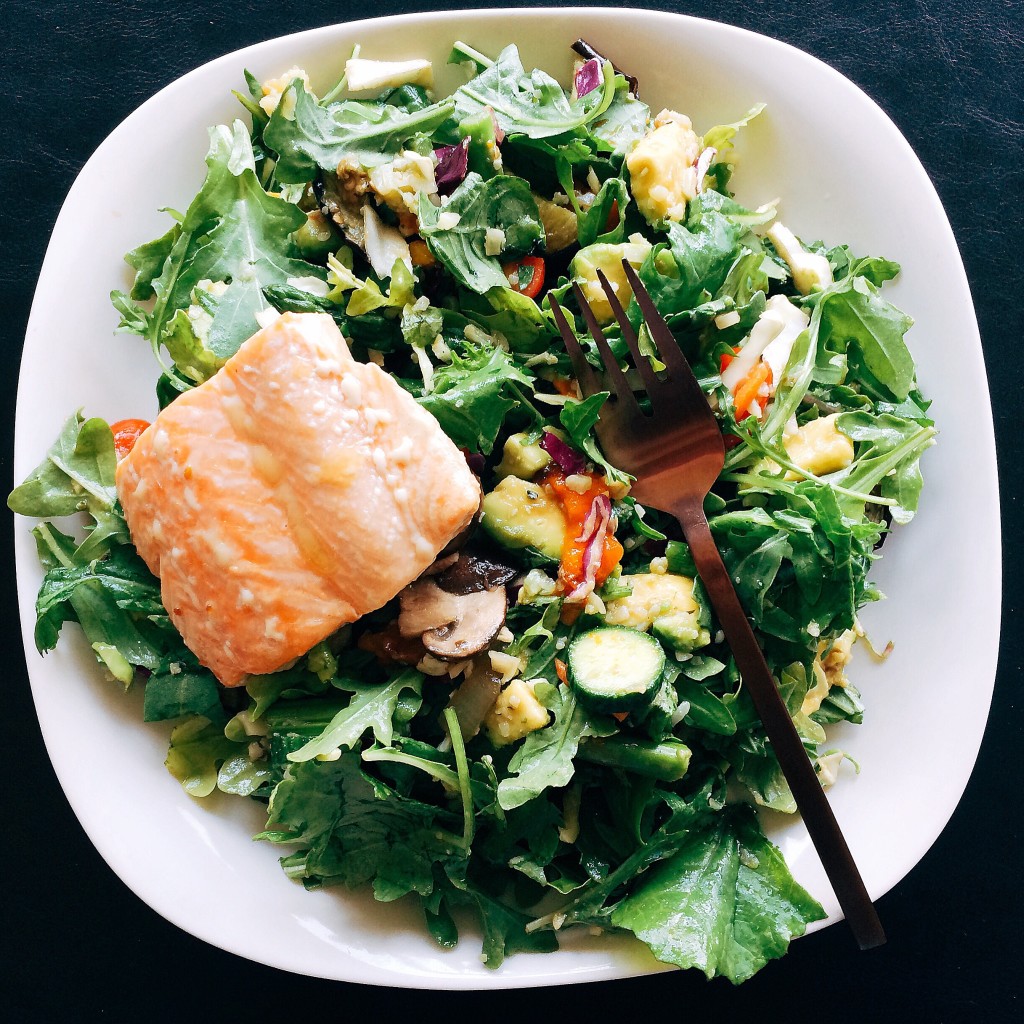Running the marathon this weekend? Wish you were running the marathon this weekend? If you’re sidelined with an injury or want to plan ahead to help your body recover from all that wear and tear, check out my story for Shape magazine about foods to help you heal.
Top of my list:
*Chicken: Great lean protein source to promote muscle repair. Here’s my go-to slow cooker pulled chicken recipe.
*Greek yogurt: Rich in protein and bone-building calcium and vitamin D. I love it with cocoa powder and raspberries.
*Salmon: Another great protein option that also provides anti-inflammatory omega-3 fatty acids as well as vitamin D. I love salmon almost any way, but this miso-marinated version is one of my old standby recipes.
*Blueberries: These little guys are packed with antioxidants. I love them with yogurt, in smoothies, and oatmeal (this zucchini blueberry oatmeal is a fave), and they’re also perfect baked into a healthy-but-tasty dessert.
*Beets: Beets are also a powerful inflammation-fighting food, thanks to the betalain, the compound which gives them that distinct red color. The nitrates in beets have also been associated with enhanced performance and recovery. Try them roasted and add to salads or blend into hummus.
*Turmeric: This golden spice has been used for centuries to treat a variety of health conditions. Modern research has shown that curcumin, the active component in turmeric, is a powerful anti-inflammatory agent. Lately as I’ve been healing an injury myself, I’m digging turmeric in everything from savory oatmeal to cauliflower rice. Turmeric tea is also one of my go-to cold remedies. It’s perfect for that December cold I seem to get every year when my immune system is just f—ing done decking the halls.
I had the privilege of interviewing several healthcare professionals (shout out to Dr. Jordan Metzl and NYC-based physical therapist Rob Zieglebaum!) who treat sports injuries. I also got some insight from a team of doctors who are running the race together this year and had their own stories and strategies to share.
Just as a team approach can help you stay motivated during training, that support is also helpful when you’re dealing with an injury. FYI, even doctors (yes, they’re human!) get injured. Doctors Brian A Levine, Dr. Jamie M. Knopman, and Sheeva Talebian, partners at CCRM IVF in New York, have been training for the 2016 New York City Marathon together.
Dr. Talebian, an avid runner who has completed full and half-marathons, is no stranger to injuries. “I’m currently dealing with plantar fasciitis and have dealt with achilles tendonitis and patellar tendonitis.” Another longtime distance runner, Knopman also has experienced her share of injuries. “I am currently dealing with issues in my right hip. I have a complete labrum tear as well as pretty intense psoas tendonitis—common injuries especially for female distance runners.” Though Dr. Levine, for whom this race is his second marathon, has so far avoided injury, he’s learned a lot from the experiences of his colleagues and patients, making an effort to properly fuel and refuel his body around and during long runs and prioritizing anti-inflammatory foods like those above.
The doctors also spoke about the role of glycemic control in inflammation. This is something I discuss often with post-op patients at the orthopedic hospital I work at too. The short version of the story is that elevated blood sugar impairs the healing process. Because the trauma of an injury or surgery also creates an inflammatory response, including a spike in blood sugar, it’s especially important when you’re healing to emphasize foods like protein and healthy fat and to choose complex carbs over refined carbs. Yes, those get-well cookies are actually more your frenemy, but if you do decide to indulge in something sweet, enjoy a small portion in the context of a meal or snack that contains from protein and/or fat to slow down the breakdown of those carbs. For example, crumble half a cookie into a plain Greek yogurt. Or if you really want chocolate, have one square of your favorite dark chocolate (another potent antioxidant source, FYI) at the end of a balanced meal, when you’ve got some protein and fat in your system.
All three recommend integrating physical therapy along with things like massage and check-ins with a podiatrist as part of your training as well as your treatment plan if you get hurt. Perhaps most importantly, they want runners suffering from injuries to know they’re not alone. Says Dr. Knopman, “Every time I talk about my injuries to another runner they nod and say, ‘I had that too.’ The more you run the more you might get hurt. You need a team around you to help you stay healthy and running for years to come!”
Cheers to that!
Are you a runner or enjoy another sport? Have you ever suffered an injury? What helped you when you were healing?

